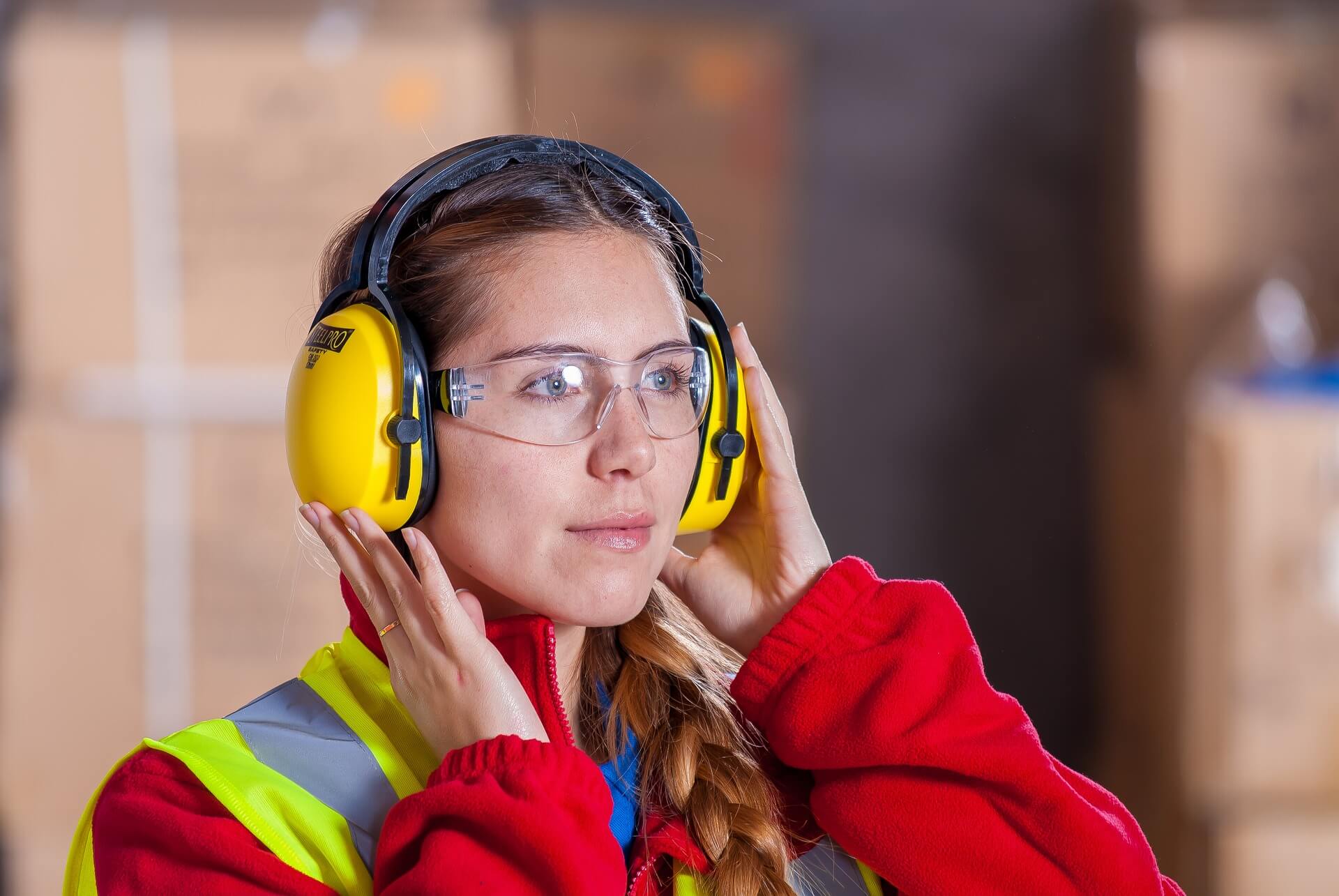What is Industrial Hygiene (IH)?
As we mentioned in the last blog post in this series, Industrial Hygiene is the science and art of anticipating, recognizing, evaluating, and recommending controls for physical and environmental hazards that could negatively impact the well-being of people in a workplace environment.
At RPF Environmental, we support our customers with a variety of industrial hygiene services. In this second part of the five-part blog series, we discuss noise.
Call us at 603-942-5432 today to find out how we can support your industrial hygiene control program.
What’s that Noise?
When people need to yell to talk to someone in the workplace who is three feet away, there could be a noise problem. If employees leave work and have humming or ringing in their ears, or experience temporary deafness, again there is a concern. Permanent damage to the nerve endings of the inner ear will slowly creep up if people are exposed to certain levels of noise over a sustained duration. Hearing aids may improve the situation but hearing loss can set in and will never again be normal. Noise can be annoying, be painful, cause stress, disrupt concentration, and interfere with communication which can in turn lead to safety issues. People do not deserve to work in an environment like that.
Yet, approximately 22 million workers in the U.S. are exposed to potentially damaging noise, according to the Center for Disease Control (CDC). Noise sources that can be problematic over time include anything that is 85 dBA or higher—as a reference, normal human speech is 60-65 dBA. Sounds from lawn mowers, diesel trucks, industrial machinery, jackhammers, loud music, aircraft, and gunshots are just some examples.
Hearing Conservation Program
To protect the hearing of workers in the U.S., the Occupational Health and Safety Administration (OSHA) enacted the Hearing Conservation Program which is required whenever workers could be exposed to noise at 85 dBA or higher for an 8-hour time-weighted average. It involves noise monitoring on employees, engineering controls, hearing testing, hearing protection, training, and record keeping.
To determine where dangerous noise levels exist within a workplace, a noise survey is needed. This is done initially to establish the Hearing Conservation Program, and then whenever processes or machinery change in a way that affects the noise level. A precision sound level meter captures a noise measurement at any given moment in an environment and noise dosimeters capture sound level over a period, typically eight hours. A firm with certified industrial hygienists can conduct this type of survey and provide official results with recommendations on how to handle the Hearing Conservation Program going forward.
Not only must the noise level be assessed, but employees’ hearing must be as well if their exposures are over 85dBA. An appropriately trained medical professional (e.g. audiologist) oversees a program to conduct a baseline and annual audiogram for each exposed worker to determine any hearing loss, followed by evaluation, documentation, and recommendations.
Employers must also provide effective hearing protection to employees in the form of hearing plugs or muffs distributed with the assistance of a trained individual to select proper fit. Employees are required to wear that hearing protection if they have sustained hearing loss, or if they are exposed to 90 dBA or more of noise over an 8-hour time weighted average. As well, training is provided to employees so that they understand the reason for the Hearing Conservation Program, how to select and use hearing protection, and the nature of the audiogram program.
Industrial Hygiene and the Hearing Conservation Program help to preserve the well being of employees across the U.S. Hear! Hear!
Industrial Hygiene: It’s All About Worker Safety
Stay tuned for the more information about industrial hygiene services in the following three parts of this series!
Call us at 603-942-5432 today to find out how we can support your industrial hygiene control program.




